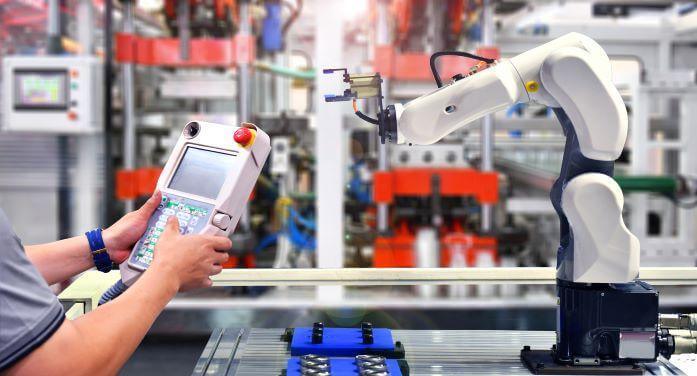In the rapidly evolving world of industrial automation, Programmable Logic Controllers (PLCs) continue to play a pivotal role in the management and operation of machinery and processes across various industries. As technology advances, so do the complexity and capabilities of PLC systems, necessitating a closer look at the future trends that will shape PLC programming and integration. This article explores significant advancements that are set to redefine the landscape of PLC technology, ensuring more efficient, secure, and sophisticated systems.
AI-Assisted PLC Programming
The integration of artificial intelligence (AI) into PLC programming is revolutionizing how these systems are designed and implemented. By leveraging AI, PLC programmers can enhance decision-making processes, automate complex tasks, and optimize operations without constant human intervention. This trend not only boosts the efficiency of programming but also opens new avenues for innovation in industrial automation. AI-assisted PLC programming allows for the creation of self-learning systems that can predict failures and adapt to changing environmental conditions, thereby reducing downtime and increasing productivity.
Edge Computing for Real-Time Decision Making
Edge computing is rapidly becoming a cornerstone in modern PLC systems, facilitating swift data processing at or near the source of data acquisition. This immediacy is crucial for industries where real-time decision-making is essential, such as manufacturing and logistics. By processing data locally, PLC systems can react more quickly to changes, enhancing responsiveness and operational efficiency. Edge computing also reduces the bandwidth needed for data transmission, easing network loads and minimizing latency, which is critical for seamless industrial operations.
Cybersecurity Enhancements for PLC Systems
As PLC systems become more interconnected and open to the internet, they become more vulnerable to cyber threats. Enhancing cybersecurity measures is paramount to safeguard sensitive industrial processes and protect against potential breaches. Future trends indicate a move towards more robust security protocols and architectures, with a focus on securing data both in transit and at rest. These enhancements will likely include advanced encryption methods, more stringent authentication processes, and continuous monitoring of network activities to detect and respond to threats promptly.
Integration of 5G for Faster Data Transmission
The rollout of 5G technology is set to significantly impact PLC programming and integration. With its promise of ultra-low latency and exceptionally high speeds, 5G will enable more agile and versatile PLC systems. Faster data transmission rates allow for more timely updates and adjustments to system operations, which is particularly beneficial in dynamic environments where conditions change rapidly. The integration of 5G will facilitate a new level of connectivity and real-time data analysis, paving the way for more responsive and interconnected industrial systems.
Increased Adoption of Cloud-Based PLC Solutions
Cloud technology is shaping the future of PLC systems by providing scalable, flexible, and cost-effective solutions for industrial automation. The adoption of cloud-based PLC solutions allows businesses to leverage powerful computing resources without significant upfront investments in physical infrastructure. These systems enable remote monitoring and control, predictive maintenance. Easy integration with other cloud-based applications, enhancing operational efficiency and reducing maintenance costs. Moreover, cloud solutions facilitate better data analytics and insights, helping businesses optimize their processes and drive innovation.
Emphasis on Modular and Scalable PLC Architectures
The demand for modular and scalable PLC architectures is growing, driven by the need for systems that can easily adapt to changing operational requirements. These architectures provide the flexibility to expand or modify PLC systems without overhauling the entire setup. This adaptability is crucial for industries facing rapid technological changes or varying production demands. Modular systems also support a more straightforward integration of new technologies and improvements. Ensuring that PLC systems can evolve at the pace of technological advancements without significant disruptions or downtime.
In conclusion, the future of PLC programming and integration is marked by significant technological advancements that promise to enhance the efficiency, security, and functionality of these critical systems. From AI and edge computing to cybersecurity, 5G, cloud solutions, and modular architectures. Each trend contributes uniquely to shaping a more robust and adaptable industrial automation environment. As these technologies continue to evolve, so too will the capabilities. Expectations of PLC systems, ensuring they remain at the forefront of industrial technology.Read more exciting articles on Apnewsday

 Education7 months ago
Education7 months ago
 Health7 months ago
Health7 months ago
 Game7 months ago
Game7 months ago
 Business7 months ago
Business7 months ago
 Tech7 months ago
Tech7 months ago
 Travel7 months ago
Travel7 months ago
 Entertainment7 months ago
Entertainment7 months ago
 Tech7 months ago
Tech7 months ago










